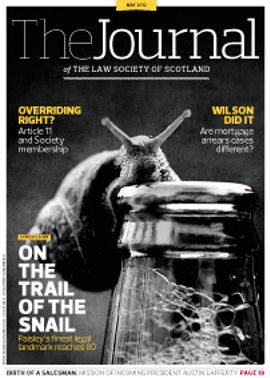Migrant days numbered

The past couple of years have seen many changes to the UK’s immigration system and, following a consultation last year, further reform has been announced. These reforms are intended to contribute towards achieving the coalition Government’s aim of reducing net immigration from hundreds of thousands to tens of thousands annually.
The immigration rules are made further to s 3(2) of the Immigration Act 1971. Proposed amendments to these rules were published on 15 March 2012, with the majority taking effect on 6 April 2012 and some to follow on 14 June 2012.
What is not new is the fact that employing individuals who do not have the right to work in the UK can lead to criminal sanctions as well as civil penalties of up to £10,000 per illegal worker. But, as a further incentive to adopt a cautious approach in ensuring employees have the necessary permissions to live and work here, the UK Border Agency (“UKBA”) has recently begun publishing reports “naming and shaming” those who employ illegal workers.
With regulation already dense in this area, how will further reform affect employers of migrant workers? The key headlines to note about the changes are as follows:
Tier 1 (high-value migrants). The “Post-Study Work” category has closed to new applicants, the Government having stated that this route is “inappropriate when UK national graduates are struggling to find work”. However, alternative routes are introduced, first in the form of a Tier 1 Graduate Entrepreneur category for individuals identified by higher education institutions as having world class innovative ideas or skills. Alternatively, they may be able to enter sponsored graduate employment through tier 2 of the points-based system without a resident labour market test needing to be undertaken. Careful consideration will therefore need to be given to the appropriate route to pursue when seeking to hire migrant graduates.
Tier 2 (skilled workers). The total period for which a person may remain in the UK as a tier 2 migrant will be limited to six years, and there will be a “cooling-off” period of 12 months required between visa applications.
Tier 4 (students). Overseas student work placements will be restricted to one-third or one-half of the relevant course, depending on the level and course provider, with those employers seeking to make use of such placements needing to be as clued- up on the rules as the educational establishments providing the students.
Tier 5 (temporary workers). Temporary workers coming to the UK for internship or work experience schemes through certain of the “Government Authorised Exchange” routes will be permitted to stay for a maximum of 12 months, with no possibility of extension. It has been argued that this will have a negative impact on knowledge sharing and global business relationships. Though, more positively, particularly for those with one eye on the upcoming Olympics and Commonwealth Games, sportspersons entering under the creative and sporting sub-category will be permitted to undertake some guest broadcasting work, so long as it does not involve filling a permanent position.
Overseas domestic workers. “Overseas domestic workers” will no longer have the right to apply for settlement or to be accompanied by dependants. Permission to stay in the UK will be limited to a maximum of six months (five years in diplomatic households), or the period of the employer’s stay, whichever is shorter. These workers will also be restricted to working solely for the employer with whom they entered the UK, or whom they came to join.
Visitors. A new visitor route will allow certain professionals to come to the UK for up to one month for specific fee-paid engagements, without the need for formal sponsorship by a UK-based employer. Those seeking to make use of this option may include visiting lecturers, professional artists, entertainers, and lawyers visiting for legal proceedings.
Mandatory curtailment. Finally, the power to curtail a person’s limited leave to enter or remain is used when there has been failure to comply with certain requirements of the immigration rules, or justification for presence in the UK has been lost. Such curtailment will now be mandatory where a migrant under tier 2, 4 or 5 of the points-based system has failed to start, or has ceased working or studying with their sponsor. This includes a situation where the migrant continues to be employed by, but ceases working for, the sponsor for a period of one calendar month, with exceptions applying for maternity, paternity, adoption and sick leave.
Employing migrant workers is undoubtedly becoming increasingly difficult for UK businesses and, with the introduction of these reforms, retaining talented migrant workers is even more challenging. Although placing restrictions on employers’ ability to hire migrant workers goes some way towards reducing the levels of UK immigration, UK businesses may miss out on opportunities to engage in knowledge sharing, recruit the very best talent, build global relationships and take advantage of overseas business opportunities in the future.
In this issue
- Arguments in store
- Farming the constitution
- Willing to wound, yet afraid to strike?
- Deferred consideration – worth the paper?
- OSCR: the secondees' perspective
- To efficiency and beyond
- Reading for pleasure
- Opinion column: Fraser Tait
- Council profile
- Book reviews
- President's column
- Wind farms: a challenge to registration
- Snail of the century
- Rights both ways
- Sell, sell, sell
- RBS v Wilson: light in the tunnel?
- Take the heat out
- Prepare for case management
- Looking into the past
- Migrant days numbered
- CPI - the story so far
- Brighton declares
- Mary Mary quite contrary?
- How to avoid that Guarantee Fund interview, and worse...
- Law reform roundup
- Apportionment of price for SDLT
- Business checklist
- Practical guide to legal risks
- Ask Ash






